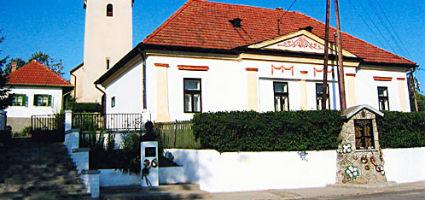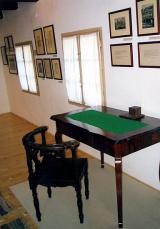2024. April 18. Thursday
Mihály Tompa Memorial House - Kelemér
 |
Address: 3728, Kelemér Tompa Mihály út 61.
Phone number: (30) 427-7567
Opening hours: 01.05-01.11.: Tue-Sun 10-18
02.11-30.04.: On prior notice |
In the main square of the village, which is the most attractive point of the settlement, there stands the medieval church in which the Hungarian preacher poet used to preach during the two years he spent in Kelemér. Beside the church building there is a museum where visitors canlearn about the most important stations of the poet's life.
Our great poet was born into a simple shoemaker's family in Rimaszombat. He studed 12 years at the college of Sárospatak.
During the revolution of 1848 the poet went to Gömör and became a camp preacher among the soldiers. In 1849 he moved to Kelemér and married Emilía Soldos. The years spent here left painful memories in the soul of the poet. The failure of the revolution was accompanied by the mourn of a father, as he lost his little son. That is when the poet wrote his famous poems entitled To the Stork and To the sons of the bird.
The longlasting sorrows and trials did not turn the preacher-poet away from his conviction, and as regards with the Hungarian literature he created one of the tipical forms of Hungarian poetry - allegory.
The museum was renovated in 1967. Visitors can have a look at manuscripts and studies written about him. By displayed books and photographs we can follow his life from birth to death.
Our great poet was born into a simple shoemaker's family in Rimaszombat. He studed 12 years at the college of Sárospatak.
During the revolution of 1848 the poet went to Gömör and became a camp preacher among the soldiers. In 1849 he moved to Kelemér and married Emilía Soldos. The years spent here left painful memories in the soul of the poet. The failure of the revolution was accompanied by the mourn of a father, as he lost his little son. That is when the poet wrote his famous poems entitled To the Stork and To the sons of the bird.
The longlasting sorrows and trials did not turn the preacher-poet away from his conviction, and as regards with the Hungarian literature he created one of the tipical forms of Hungarian poetry - allegory.
The museum was renovated in 1967. Visitors can have a look at manuscripts and studies written about him. By displayed books and photographs we can follow his life from birth to death.
